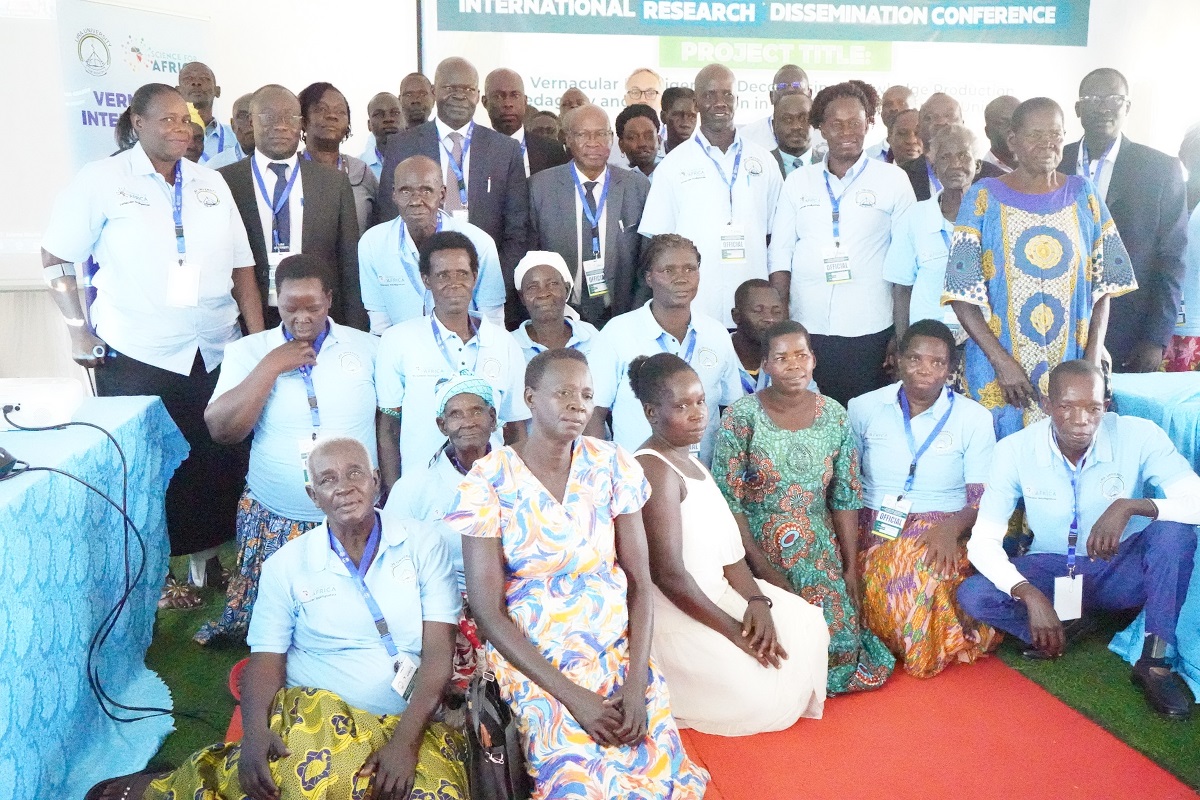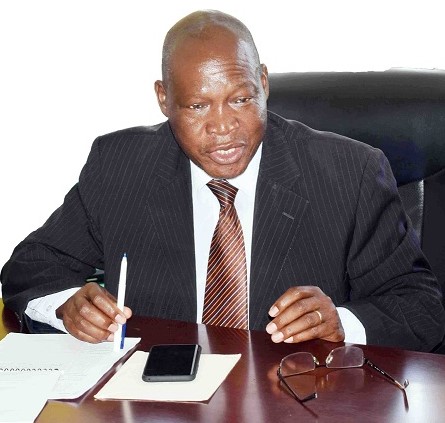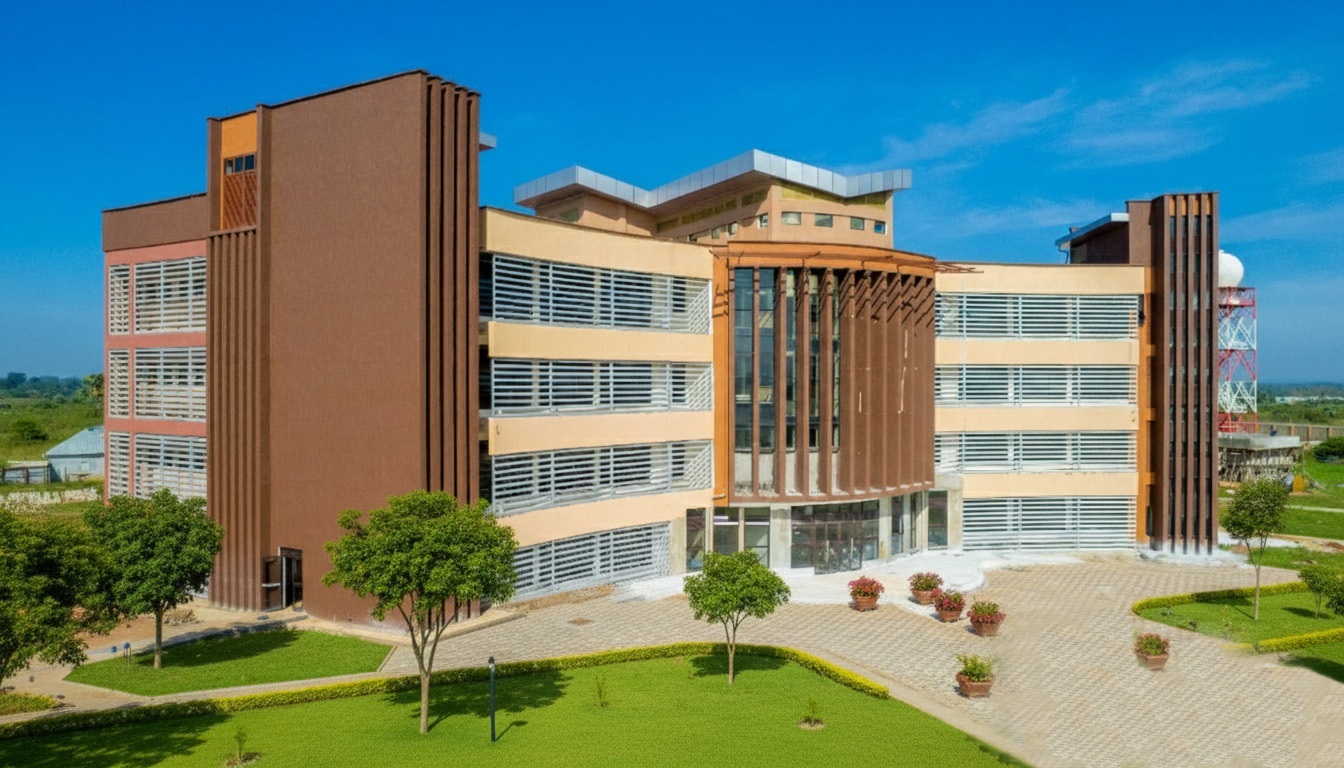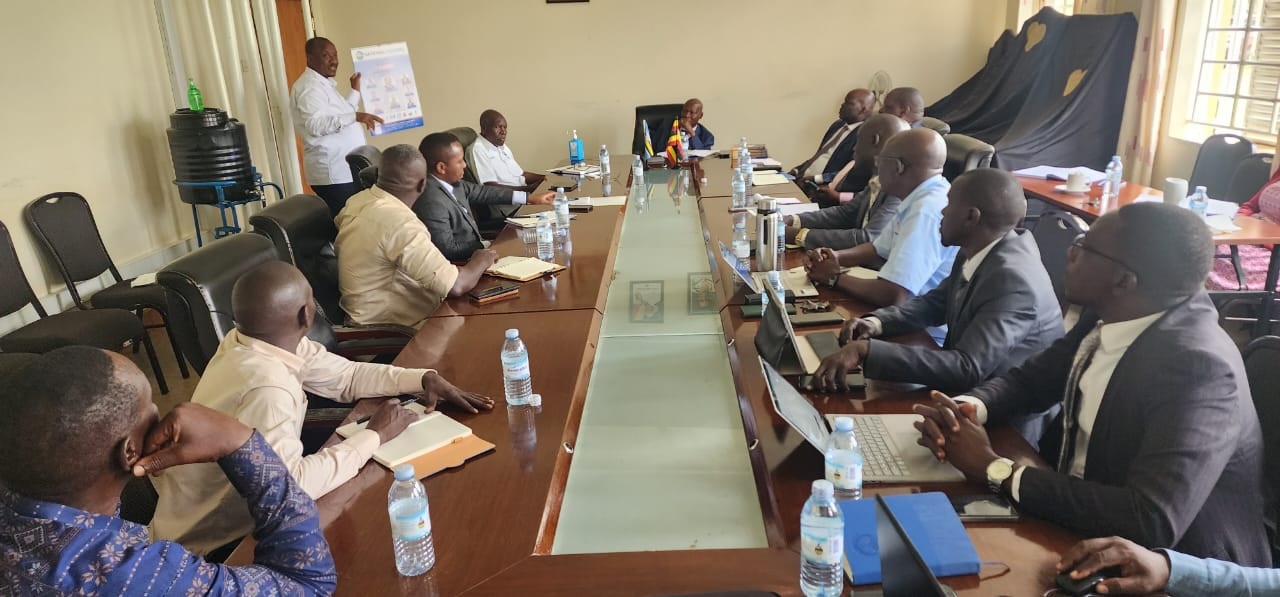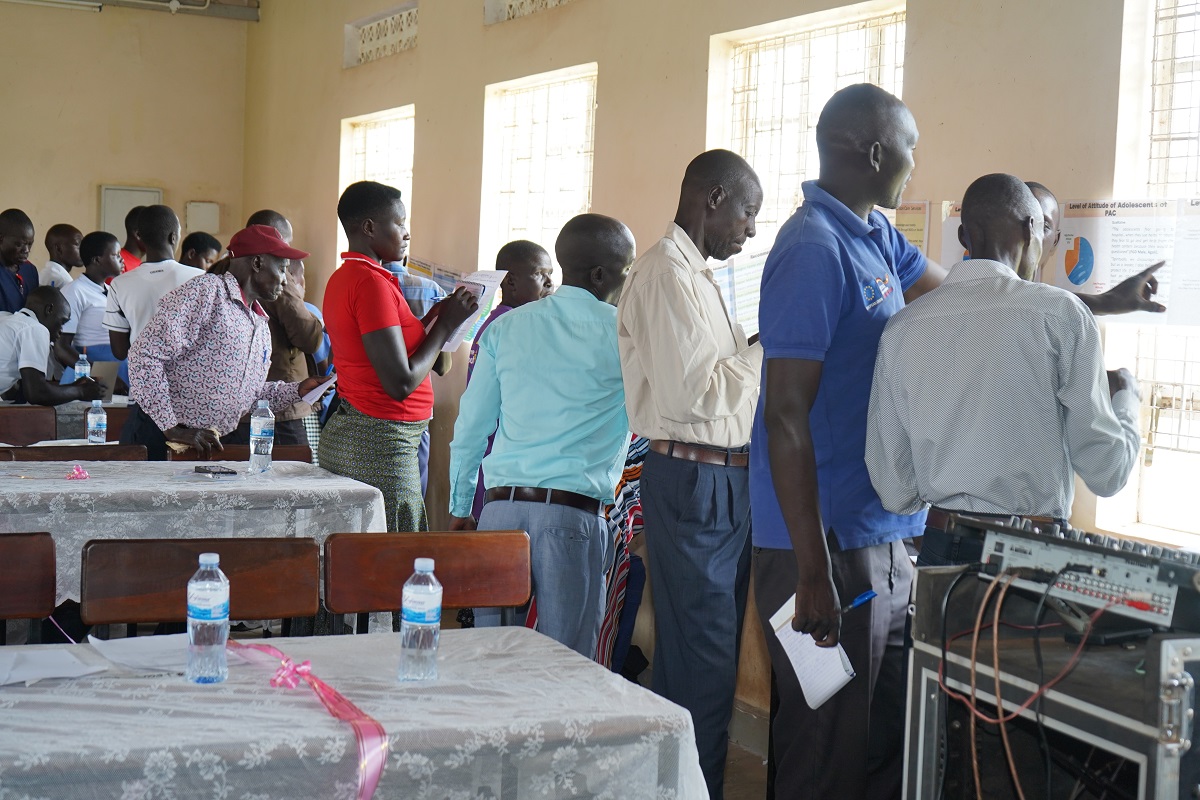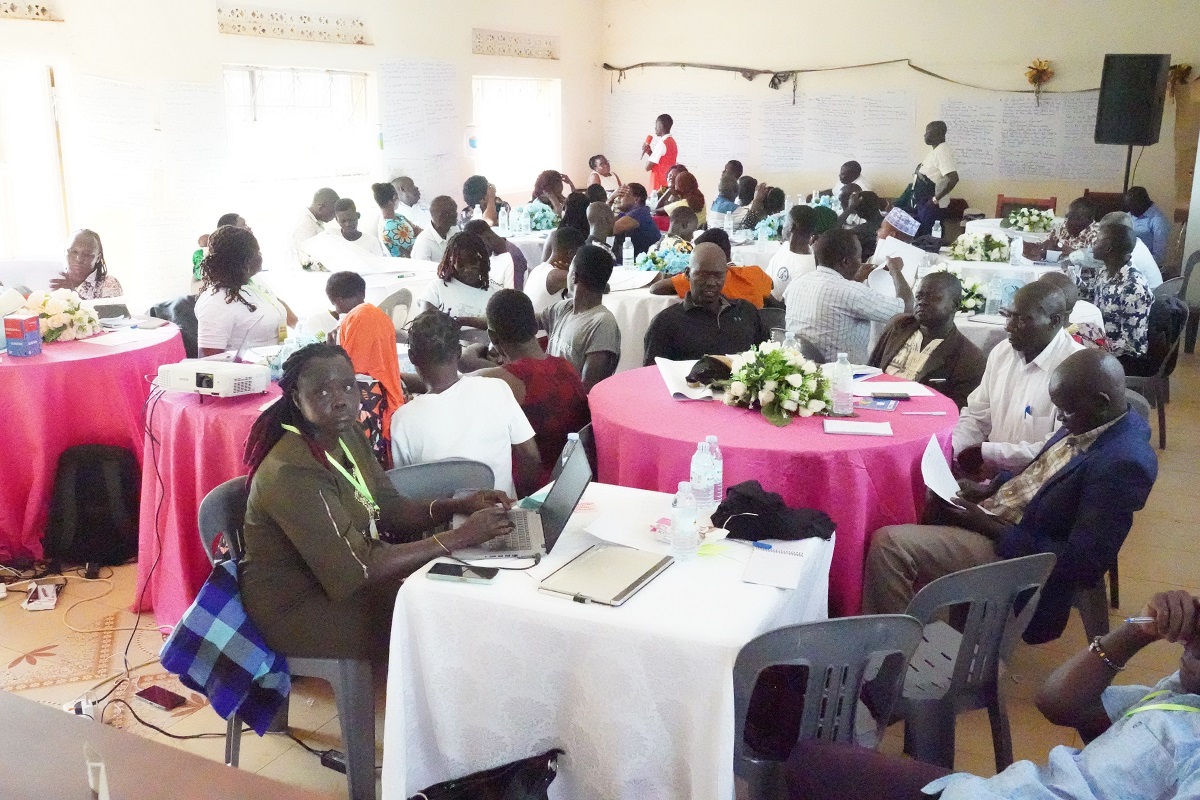By Patrick Opio
Senior Communications Officer
Lira University Vice Chancellor, Prof. Jasper Ogwal Okeng has underscored the importance of vernacular intelligentsia in Africa saying the practice fosters cultural preservation and identity.
Prof. Ogwal Okeng revealed that African traditional practices improve educational outcomes by using mother-tongue instruction, and promoting more relevant and locally-rooted intellectual and economic development. He was addressing audience during the International Dissemination Workshop on Vernacular Intelligentsia research findings held at the Faculty of Management Sciences Hall on 6th November 2025. The theme: Rethinking knowledge from the margins.
Project Title: Vernacular Intelligentsia. Decolonizing Knowledge Production, Pedagogy, and Dissemination in the 21st Century African University, with Dr. Laury Lawrence Ocen as the Principal Investigator of the research.
Prof. Ogwal Okeng challenged dependency on Western models saying there is a dire need for Africans to revitalize indigenous knowledge, ensuring that meaning and progress are interpreted in ways that are relevant to African audiences.
“Research and innovations are at the centre and priority activities we cherish and take on seriously as the 21st Century University,” he said.
Assoc. Prof. Okaka Opio Dokotum, Deputy Vice Chancellor, said vernacular intelligentsia promotes creation and interpretation of ideas in a way that is locally relevant, rather than continuing to rely on translations or concepts that may not align with local cognitive processes and values.
On increasing accessibility, Prof. Okaka Opio said developing vernacular literature makes knowledge and art more accessible to the general public, not just those who have learned a colonial language.
Prof. Okaka Opio said an intelligentsia that thinks and communicates in vernacular languages can help steer national development in ways that are rooted in ancestral wisdom, rather than being bound by Western notions of modernity.
By drawing on local wisdom, he said, vernacular intelligentsia can foster unique solutions to local and global challenges by promoting collaboration between communities and policymakers.
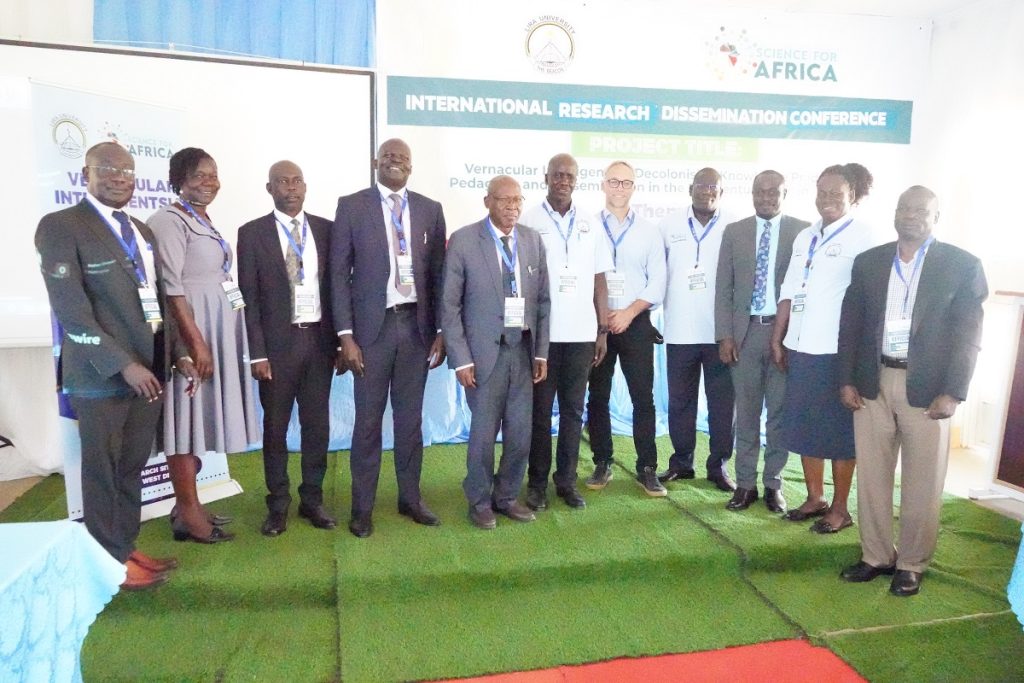
The Guest of Honour, Prof. Adam Branch, from the department of Politics and International Studies of University of Cambridge said climate change negatively affects traditional medicine practices in Africa by decreasing the availability of medicinal plants due to habitat loss and altering their chemical composition, which reduces their effectiveness.
Prof. Adam said, “destroying forests for charcoal business and others leads to greater difficulties for herbalists to find and access necessary plants, threatening the sustainability of traditional healing systems and potentially leading to the extinction of plant species.”
Assoc. Prof. Dr. Bernard Omech commended Dr. Laury Ocen for undertaking the research project adding the study seeks to challenge that imbalance, to place Africa’s intellectual traditions, languages, and lived experiences at the centre of global scholarship.
“It urges us to teach, research, and disseminate knowledge through African lenses, informed by African epistemologies,” Prof. Omech said.
Prof. Omech, the Director Research and Graduate Training encouraged decolonizing pedagogy, democratize publishing, and recognize that local communities are not just subjects of study but partners in inquiry.
He said, “This is not about turning away from global science, it is about balancing it with local meaning. It is about reclaiming our right to define what matters, how it is studied, and how it is shared.”
Through our Directorate of Graduate Training and Research, Prof. Omech said, we are working to strengthen research governance and postgraduate training, promote open access and interdisciplinary scholarship, support community-based and implementation research, particularly in health and development and encourage partnerships that are equitable, ethical, and locally beneficial.
Prof. Omech added they plan to position Lira University as a regional hub for transformative research, a place where young scholars can thrive, and where the knowledge produced responds to the needs of our people while contributing to global conversations.
“We are very grateful to the scholar himself, Dr Laury Ocen for not disappointing the University and he has delivered by sharing his findings today in such diverse forum of intellectuals, “he noted.
While presenting the findings, Dr. Laury Ocen saidVernacular intelligentsia is a conceptual category drawn from Antonio Gramci’s notion of “Organic Intellectual,”the intellectual grown or developed from within or from the locality; the intellectual schooled out of local epistemic provisions of his or her culture.
“In our contexts, these are intellectuals produced in oral knowledge communities (of Amuca, Bar Apwoo, and Odokomit) in Lira City West, northern Uganda,” he said.
Pertinent Research Questions asked during the research
•Who are the vernacular intelligentsia and what are the intellectual parameters of identifying them?
•Where do they say; what kind of communities create vernacular intelligentsia?
•What kind of knowledge do they produce?
•What are the key epistemological and pedagogical requirements of enhancing the participation of Vernacular Intelligentsia in academic and public institutions?
•In what ways can we engage Vernacular Intelligentsia to enhance community engagement between academia and
•What methods can be used to enhance academic and research collaboration with vernacular intelligentsia?
•How can we improve recognition of the intellectual rights of vernacular intelligentsia in the academy and public practice?
What does it mean to rethink knowledge from the margins?
•There are complexities and fallacies that surround knowledge production, consumption, and ownership in the academy and other public spaces.
•Knowledge generated and used in the peripheries of societies are often regarded as second fiddle, unreliable, unsafe, untested and therefore unsuitable for informing public policies and practices
Knowledge at the margins
•The margins refer to the oral, the unrecognized spaces outside the mainstream public, and the formal institutional establishments such as universities, colleges, academies, and other global structures of knowledge and power.
•The margins describe the so-called “unschooled”, semi-schooled, informal, uneducated, or semi educated knowledge producers often alienated, unspoken of, and regarded as unprofessional
Rethinking the margins as centre of knowledge
•This theme offers to us the opportunity to rethink the position, placement, and participation of vernacular intelligentsia in the local, national, and global politics of knowledge.
•The academy, government, state, and global epistemocracies should determine new formulas and strategies of knowledge production and dissemination mediated educational institutions and public trusts
•At the centre of this thinking is the place and agency of indigenous knowledge in both oral and elite communities
Findings, Lessons, Recommendations
- Oral knowledge communities are rich intellectual fields for the academy and public authorities to plough.
Findings/ What is a knowledge community?
• Community with a known history of knowledge that has specific methods of creating, dispensing, storing and transferring that knowledge in a way that benefit a sizeable clientele using ethical methods that govern the production and consumption of that knowledge.
Findings, Lessons, recommendations:
•Knowledge communities produce indigenous intellectuals. In the context of this study are unschooled, semi-schooled knowledge experts who have not gone beyond secondary school level 4 (in Uganda’s education system)
•Their communities recognize them as knowledgeable and intellectually influential.
2. Hereditation is an important form of knowledge in oral knowledge communities
•Hereditation is knowledge inherited from traditions and cultures (e,g, the Inomo Clan of Lango, northern Uganda are born physiotherapists)
- There is a silent Folk School which we refer to as Ethno science. (creativity, art, innovation specific to a particular folk or rural community. (e,g roof thatching)
Ethnoscience: Roof setting and thatching
•Ethnoscience, also known as folk science: Knowledge innovated or developed by indigenous experts
•The intellectual has primary education only in formal schooling but has travelled to Ethiopia, Kenya, Rwanda, South Sudan to thatch roofs
On the meaning of ethno-science
•Ethno-science also refers to epistemic histories of communities, local art, heritage, traditional food science, belief, etc.
•Histories of clans and communities and their specializations, etc.
Client-based knowledge is sustainable
•False teeth extraction
•The surgeon’s level of education is primary 5
•He receives between 3-10 clients a day
•Hereditary and indigenized knowledge forms are sustained by Belief and client support.
•Clients recognize, legitimate, support, and protect these intellectuals from stigma, alienation, and epistemic violence of exclusion (govt. policies, academic theories, international protocols of practice, etc
Lessons, recommendations
Client trust in knowledge communities
▪Academy has something to learn from the Vernacular Intelligentsias in terms of client trust
▪ Vernacular Intelligentsias depend on client trust to survive the violence of exclusion unleashed by elite stigma, public policies and international protocols of practice
▪It is the client that provides them link, security, and market for their respective brands of knowledge
▪The client navigates terrains around which the validity of vernacular knowledge is confirmed through his or her positive feedbacks, complements, suggestions, etc
•Complementary epistemologies is the way to go between folk scientists/vernacular intellectuals/ethno-scientists, all such denigrating labels notwithstanding. (e.g between the local griot and medical scientists, spiritual healer and conventional healer, etc.
•Home schooling/tutorship works alongside formal schooling. The academy should take keener interest in the home as a complete school.
Findings, Lessons, recommendations.
•Small class methodologies used by vernacular intellectuals in mentoring, tutoring, and apprenticing of learners is more effective. VIs specialise at an earlier age compared to learners in the academy or the university. In formal school leaners are known to specialise at a later stage, thus perhaps limiting their skills development.
Rethinking internship and placement centres
•Decolonization of the classroom. The 21st Century African University should embark on the landscaping of oral knowledge communities—exploration of fields, work-stations to generate an inventory of knowledge fields where learners can be sent for placements instead of conventional internships in the bureaucratic publics.
Promoting community of practice
•The 21st Century African University should engage community of practice as a mode of study that brings students in active engagement with oral and other elite communities. Community of practice entails group membership, shared goal, scheduled meetings, well defined set of activities that should yield results.
•The University and other public knowledge trusts should develop of African languages into languages of advanced science to promote the competency of Vernacular Intelligentsias.
•Documentation of folk sciences is important
Dr. Laury Ocen named the project partners as Lira University and the “Science for Africa Foundation” a Pan-African, non-profit foundation that supports, strengthens, and promotes science and innovation across Africa.

